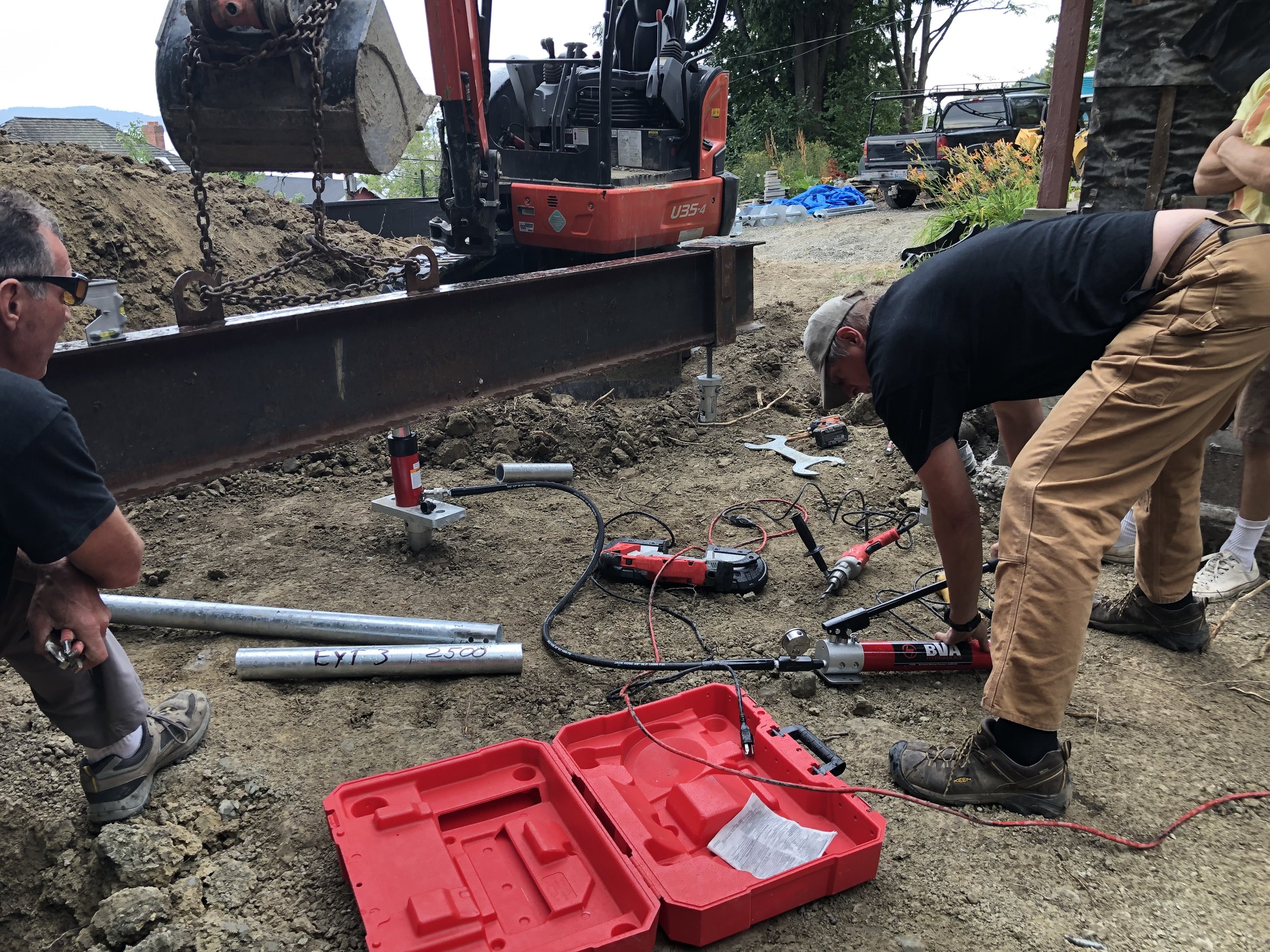When it comes to constructing Detached Accessory Dwelling Units (DADUs) in your backyard or any property extension for that matter, one critical decision that often puzzles homeowners and construction professionals alike is choosing the foundation type. Traditionally, concrete has been the go-to option for most. However, the evolution of construction technology and methodologies brings us to a competitive alternative - helical piers. But the question that consistently arises is, "Are helical piers cheaper than concrete?" The answer could be more nuanced than a simple yes or no.
To understand the cost-effectiveness of helical piers versus concrete foundations, especially in the context of backyard DADU construction, we need to consider several factors, including the minimization of excavation requirements and access issues around existing buildings.
Understanding Helical Piers and Concrete Foundations
Helical Piers: Essentially steel shafts with helical flights, these are screwed into the ground to a predetermined depth based on the soil conditions. They’re known for minimizing disturbance to the surrounding area.
Concrete Foundations: These involve digging to set forms into which concrete is poured. This traditional foundation type can require significant excavation and soil displacement.
The Cost-Saving Benefits of Helical Piers for DADU Construction
Minimized Excavation Needs
One of the most significant cost-saving benefits of opting for helical piers over concrete is the drastic reduction in excavation needs. Given the typical constraints in backyard constructions, such as limited space and proximity to existing structures, the reduced need for excavation with helical piers becomes a pivotal advantage. Not only does this mean less time and labor, but it also reduces the costs associated with soil export and import.
Easier Access in Tight Spaces
Backyard DADUs are often nestled in confined spaces, surrounded by fences and other structures merely a few feet away. Helical piers, with their relatively less invasive installation process, shine in these scenarios. They require minimal machinery and can be installed in tight access areas without the need to move around large quantities of soil or disrupt existing landscapes or structures significantly.
Depth to Proper Soil Bearing
For DADUs and similar structures, achieving the proper soil bearing strength is crucial for a stable foundation. In situations requiring a foundation depth of 4 feet or more to reach the appropriate soil bearing stratum, helical piers often emerge as the less expensive and more practical foundation option. This is because extending helical piers to reach suitable soil bearing capacities often incurs lower costs and less labor than excavating to the same depth with concrete.
When Might Concrete Still Be the Choice?
Despite the advantages of helical piers, there are scenarios where concrete might still be preferable. Local building codes, specific soil conditions, or the need for a certain type of basement or crawlspace can influence this decision. Thus, it's vital to consult with a structural engineer or a professional experienced in DADU construction to determine the best foundation solution for your project.
Final Thoughts
Choosing between helical piers and concrete foundations for your backyard DADU is a decision that hinges on multiple factors. While helical piers present a compelling case for cost savings through minimized excavation and ease of installation in tight spaces, it’s crucial to consider each project's unique attributes. Consulting with professionals and weighing the short-term and long-term cost implications will ensure your DADU stands on a firm, economically sound foundation.
Are you ready to make an informed choice for your DADU project? Contact us today to request a quote and explore how helical piers can offer a cost-effective and practical foundation solution for your needs. Our team is eager to guide you through the decision-making process, providing expert recommendations tailored to your project's specifics.





















